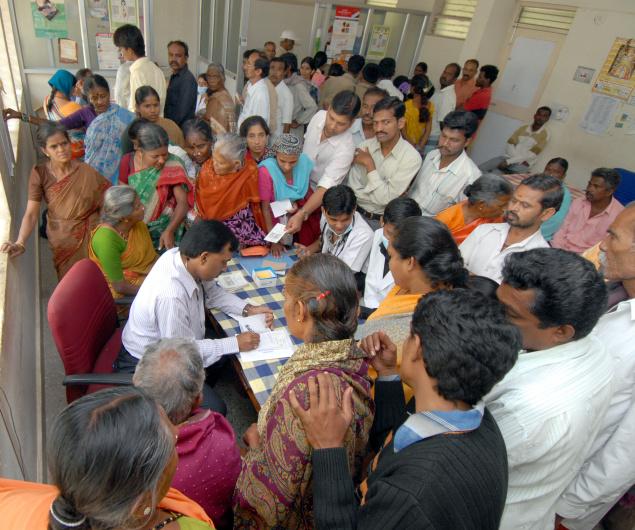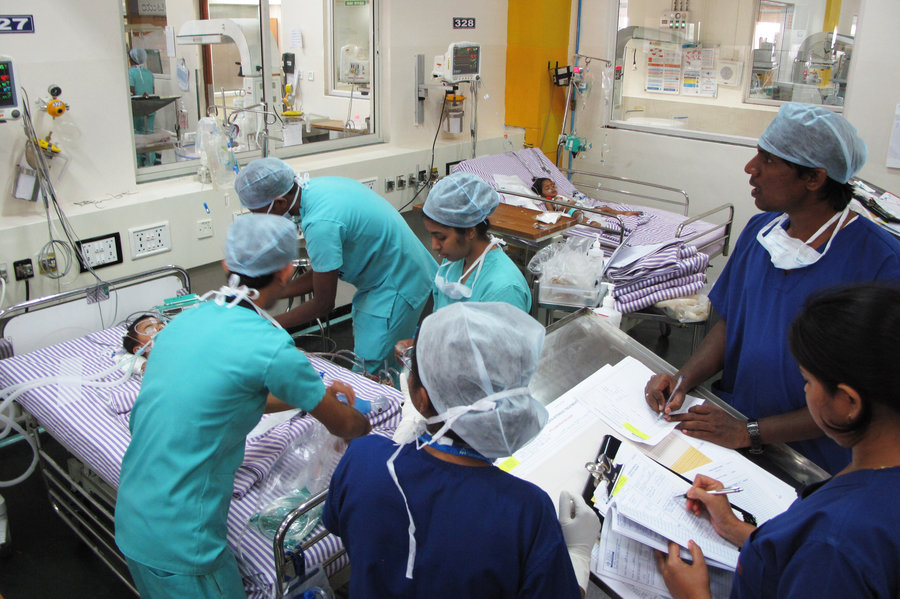
High stress drives Indian doctors to suicide and drug dependency: The dark side of India’s medical culture
It’s ironic that while hospitals have counselors for patients, the same provision is often lacking for the doctors. Stretching his limits to the utmost, serving more number of patients a day than could be considered sane, the Indian doctor works under extreme stress. And it’s showing.
Emotionally exhausted, high on stress
As Dr.Keerthi Pai, a consultant clinical psychologist said in an interview with The Times of India, most doctors who consult psychologists complain of being emotionally exhausted. Also, they say that they feel detached from the work they do and from the patients they treat. Dr.Pai says that the pressure levels on the doctors are so high that they are sometimes not even seen as humans. Then, there’s the matter of feeling overwhelmed when they see death. Dr.Pai adds that the doctors feel guilty when a patient dies, even if they are not to be blamed for the death.
A decade back, Dr.Pai along with a team did a study on the stress levels of doctors, nurses and those working in the IT industry. The study revealed that while doctors enjoy the highest level of job satisfaction, the stress levels too are very high.
An article which appeared in the TOI website mentions what Dr K Raghavan has to say. The doctor who retired as the head of the department of general medicine at the government general hospital in Chennai was in the government service for 32 years. He says how it was common to have doctors working for 24 hours at a stretch. Dr. Raghavan adds that even if the doctors were stressed, they would be scared to inform their seniors. This resulted in the doctors viewing the patients mechanically.
Almost half of these aspiring doctors become burnt out in the course of their schooling, resulting in their loss of empathy for others. The same article mentions how psychologists opine that having regular screening for doctors would help. As said by K Veerapandian who is a psychology lecturer at Madras School of Social Work, the doctors need breaks in between their work. Even short ones would be beneficial if there are signs of burnout.
Stress among doctors working in critical care

A cross sectional survey that appeared in the Indian Journal of Critical Care Medicine shows the scenario among doctors who work in critical care units of India. It turns out that between two fifths and three fifths of the doctors are moderately to severely stressed. 242 respondents participated in the survey. 85% of them were male. They were either intensivists for full time or specialists who would spent at least half of their day in critical care units.
The study reveals the percentage of doctors under high stress levels in different specialties:
- Padiatricians-57%
- Anaesthetists-44%
- Pulmonologists-39%
- Intensivists- 38%
- Practitioners of internal medicine- 37%
The study also notes that the highest levels of stress were found in-surprisingly or not,-the heads of departments(50%), directors(45%) and consultants(41%).
As for causes of stress, the highest ranking were having too much responsibility and also managing VIP patients.
Alcohol and drug dependency among other maladies
Recommendations for a more relaxed work environment for the doctors make even more sense when you look at certain statistics. Like the ones that were cited in a study that was published in the Indian Journal of Critical Care Medicine. The study brings out these startling findings:
- 21% of doctors consume alcohol in higher volumes
- 18% are dependent on antidepressants
- 14% are heavy smokers
- Docs as well as nurses who work in the ICU routinely report auditory hallucinations- meaning they hear the emergency beeps even when they are not at work.
Stress differences in male and female docs
A study which appeared in The International Journal of Indian Psychology looks at the stress levels based on gender. The study which was conducted by Dr.Sumiran Passey, Prof.Dr.Jaspal Singh Sandhu and Dr.Shweta Shenoy analysed 113 doctors for both perceived and measured stress.
The study showed that perceived stress levels are higher in female doctors. But measured stress was higher in males. They also found that the female doctors expend more energy than their male counterparts.
Depression and suicide among medical students
Medical training is one of the toughest ordeals. Such things as the longer hours of study, lack of enough sleep and standing on one’s feet for hours to learn the necessary clinical skills all take a toll. The results are always grim -mental fatigue, depression and social isolation being common. The overload also leads to cases of burnout, a sad scenario given how these young people have the lion share of their lives ahead of them. Then, there’s the case of stress-induced suicides.
On this regard, a study was conducted by Abhinav Goyal et all which appeared in the Journal of Mental Health and Human Behaviour in 2012. The study looked at 265 undergrads of a medical college in Delhi. It shows that association with suicide ideation was as high as 53.6 percent. It was found that suicide ideation was the highest in the first professional year(64.4%) while the lowest was 40.0% for those in the third professional year. Even more alarming is the fact that 4.9 percent of the students contemplated suicide seriously whereas 2.6 percent have attempted suicide at least once.
On the whole, the picture for the Indian doctor doesn’t look too rosy. The nation is getting ready to celebrate the National Doctor’s Day tomorrow. While it’s only right to show respect for those who work for the nation’s well-being, the respect shouldn’t be half-hearted. The government can start with a higher allocation of the GDP(currently, the figures mentioned are as poor as 1%) for better provisions and facilities.
Tending to those who care would only help everyone involved-including the patients who consult the docs.
Image credits:npr.org, greetlandnews.com
Images may be indicative